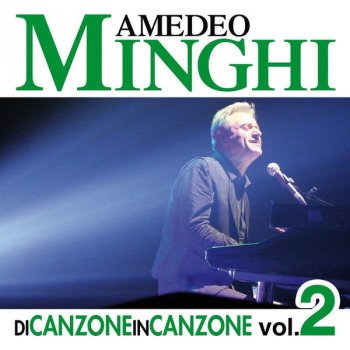

As listeners, we are never told what happened, but we assume some sort of tragedy or heartbreak befell him and only this girl gives him the will to go on. This comes after Gianni admits that he no longer believes in happy endings: “Favole rosa non chiedo più” (Literally, it translates as: “I no longer believe in pink fables”). The list of reasons for the gratitude announced in the title concludes with: “Vivere ancora Non fa paura Solo con te” (Living again is not something to be afraid of, but only with you).

"The title translates as 'Thanks Because,' and the lyrics go on to list the reasons for such gratitude.
VIVERE ANCORA LYRICS FULL
However, the real reason behind choosing the above word order instead of the more common “Io vedo di più coi tuoi occhi” (I can see more through your eyes) is to end the line with a “ tronco.” That is, the final syllable comes to a full stop (as it does with “… più”) instead of being drawn out (as it would with “… occhi”). It adds emphasis to the “eyes” to mention them again early in the following line. This word order is correct in Italian, but one of the reasons it flows well in the context of the song is because of the phrase preceding it: “Io mi riposo dentro i tuoi occhi” (I rest in your eyes). Then, the lyrics read, “ Io coi tuoi occhi vedo di più” (I, through your eyes, can see more). This is true for many women, although there are those who only want protection from their boyfriends and husbands, especially Italian women who still believe in the “good old ways.” Another quality romantic line is, “Grazie perché, anche lontano, tendo la mano e trovo la tua” (Thank you because, even from far away, I reach out my hand and find yours). The next phrase is great: “E perché vuoi un uomo amico, non uno scudo vicino a te” (Because you are looking for a man who is a friend, and not a shield next to you). The title translates as “Thanks Because,” and the lyrics go on to list the reasons for such gratitude: “Mi eri vicina, ancora prima di essere mia” (You stayed close to me even before you were mine). Music fans who remember the old days might recall that it was as a hit for singer-songwriter Bob Seger, in 1978" "'Grazie Perché' is interesting because most British and American audiences will recognize it, but not sung by Gianni Morandi. Instead of translating the lyrics for the Italian version, new lyrics were written to fit the music, so that the Italian words bear no relation whatsoever to the English original.

Kenny Rogers and Sheena Easton covered it, when it was called “We’ve Got Tonight.,” and musicMusic fans who remember the old days might recall that it was as a hit for singer-songwriter Bob Seger, in 1978. “Grazie Perché” is interesting because most British and American audiences will recognize it, but not sung by Gianni Morandi. Other songs, however, like “Grazie Perché,” were hits for othersalready hits before Gianni sang them. Some of his songs were written for him and a few of them he wrote himself. He is one of the most popular Italian singers and has had many hits during his long career. It was a great concert, and at no time was the public aware that Gianni was of an advanced age. When one of his guests, Cher, seemed to forget her lyrics, he managed to save the situation by singing her part and inviting a guitarist to fill in with an impressive solo. For someone who is about to turn 70, this is no mean feat. Recently, he held an enormous and successful 2-day concert in Verona.

Gianni Morandi was born in 1944, in a small town called Monghidoro, near Bologna.


 0 kommentar(er)
0 kommentar(er)
